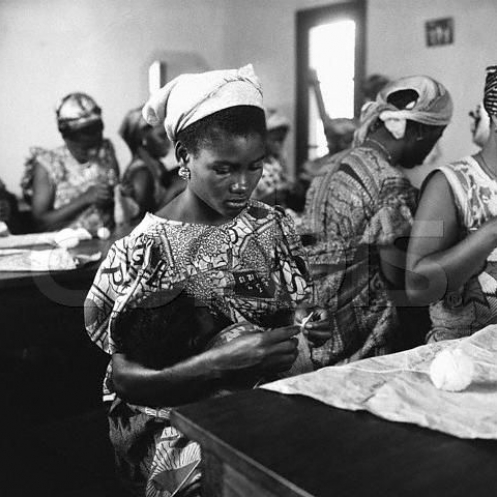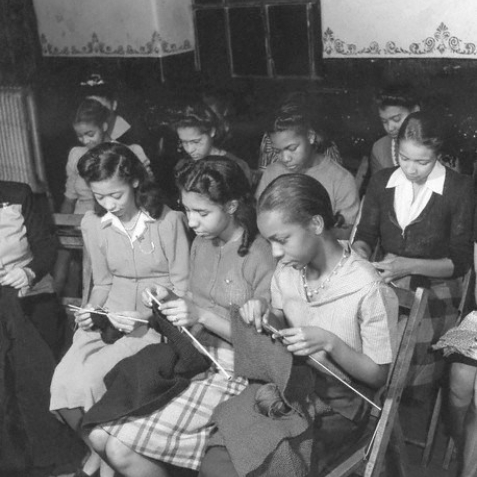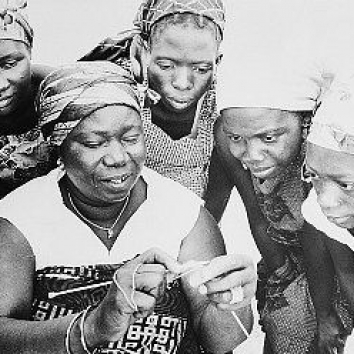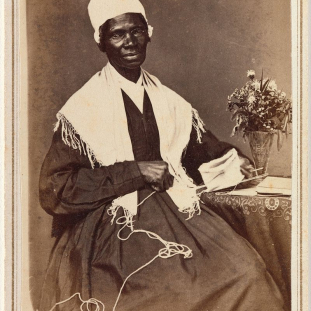Hiyahiya S History Of Knitting International Women S Day
In celebration of International Women’s Day, we’re going to be looking at the ways throughout history that women have used craft as a form of activism and political resistance. We’ve looked previously at the Source of the Stitch ‘n Bitch where women used knitting groups to discuss and debate political change during the Second World War, and the Daughter’s of Liberty who held spinning bees to create colonial clothes in an effort to boycott British textiles during the American Revolution.
In the same fashion, we’re going to take a look at females knitting in black history. Sadly very little has been written on this, but we do have access to some fantastic images from a great Pinterest board, African Americans knit too.

Source: Corbis Images
This photo was taken in 1957 during a government training session in parenthood, and shows a woman from the Belgian Congo knitting a jumper for her baby in her arms.

Source: Getty Images
This image shows young African American women knitting Bundles for Bluejackets in Louisville, Kentucky. It was taken in 1942, just as the US joined World War II.

Source: Corbis Images
The National Mothercraft-Homecraft Centre in Nigeria teaches special courses such as sewing and knitting, cooking and nutrition, literacy, family health, first aid and home nursing. It aims at improving the standards of family and child care for those who weren’t able to attend school. Pictured is one of the teachers demonstrating proper knitting technique in 1967.
The painting on the left titled ‘Grandmother’s Helper’ was completed in 1899 and seemingly depicts a grandmother teaching her granddaughter to knit. The left is called ‘The Little Knitter’ and portrays a young girl knitting. Both were by painter Harry Roseland, who was most famous for his work with poor African Americans.

Perhaps the most iconic, this image of Sojourner Truth with knitting on her lap is the perfect tribute to her activism for African-American abolitionism and women’s rights in the US. She gave many notable speeches, with the most famous in 1851 which was later coined “Ain’t I a Woman?”, where she demanded equal rights for all women and all black people. Truth passed away in 1883, and left a wonderful legacy of fighting for equal rights which we still have a constant battle for today.
If you’d like to show your support for International Women’s Day, one of our retailers, LoveKnitting, is supporting the Women for Women International in their #MessageToMySister campaign, where they have curated a collection of patterns where 100% of the profits will go to the charity. Find out more on their blog.
Do you know of any knitting stories HiyaHiya Europe should research and write about in an upcoming history post? Let us know in the comments below!
